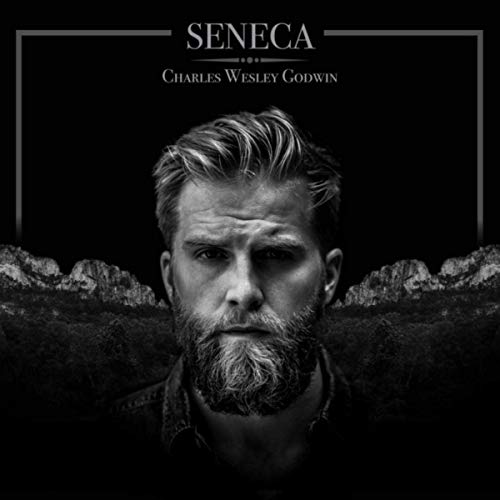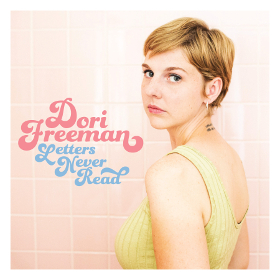Rating: 8.5/10
The roots of our beloved country music can be traced back to Appalachia, to the mountains of West Virginia and Kentucky where the struggles of real people laid the foundation for an entire genre. Even today, some of the most compelling country music being made is coming out of this region, from Tyler Childers to Justin Payne to Dori freeman. Charles Wesley Godwin is the next artist to bring the Appalachian sound and spirit to life, taking a more singer/songwriter approach similar to that of Freeman. If Tyler Childers is the Turnpike of Appalachian country, writing great lyrics that are still fantastic live, Godwin is more like the Jason Eady of the region, with thoughtful details and stories that capture the soul more and more with each listen.
Appalachia is home to a people with deep ties to the land and a resigned familiarity with the hard times. Godwin speaks of both in the opening song of his debut album, (“Windmill) Keep on Turning,” as he paints a picture of a difficult existence but declares that a mountain sunrise can make all those problems insignificant. It’s the beginning of an epic that unfolds throughout Seneca, a journey through Appalachia in both sound and story, told through these characters and through the lens of Godwin’s own perspective. It’s not a concept album, but it’s a complete and accurate portrait of West Virginia, from the loneliness of the woods to the struggle of the people to the hope that runs through it all and the beauty of the land that makes everything worth it.
The production of Seneca is nothing short of impressive. It’s often seen as secondary on projects like this, where the songwriting is the crown jewel. But Godwin uses the production to his advantage, as a tool to heighten these stories, the way it was meant to be utilized. There’s delicate piano to add color on “Coal Country,” and crying fiddles to accentuate the loneliness of “Seneca creek.” There is variety in instrumentation, but Godwin has definitely found his sound, a rare accomplishment on a debut album. Most of these songs are in darker keys, and everything feels lonesome, as if the whole album were recorded in a coal mine or on some deserted mountainside. But it’s not desolate and atmospheric like say, Red Shahan’s latest album, which tried to set the tumbleweeds and endless West Texas sky to music; rather, this record still has a warmth and intimacy to it. It’s lonesome, yes, but not lonely. It’s peaceful, capturing the mood of the land it portrays beautifully.
And then there are the stories themselves, from the five-minute tale of a couple who made their life together by Seneca Creek in the song of the same name to the story of the miner who tries to comfort his widow in “Sorry for the wait.” Godwin paints a bittersweet picture of the land in “Coal Country,” a land he calls broken and describes as lying “in its grave of Appalachian stone.” His love for West Virginia pours out in every line, as well as his grief for the hardships its people have endured.
But there’s beauty and hope in this place too. “Hardwood Floors” provides a nice bit of levity, with plenty of fiddle and steel to accompany a nice ode to dancing and living in the moment and just sharing a night with the one you love. “Strawberry Queen” is one of the best songs on a stellar record; it’s a simple, charming little love song, but it illustrates the beauty in the simple things, and how any struggle is easier to make it through with the right one by your side. “Shrinks and Pills,” though it’s one of the few places on the record where the production isn’t fantastic, provides a rueful, humorous way of looking at everything, saying that Godwin sings because “these songs save a fortune on shrinks and pills.” These lighter moments are exactly what a dark, intense album like this needs to keep from being depressing and make the deeper stuff stand out all the more.
As mentioned, “Shrinks and Pills” is one of a couple instances where the production doesn’t enhance the material, or perhaps it would be fairer to say it’s one moment where Charles Wesley Godwin’s enunciation issues affect the song, as the production here drowns him out a little. His enunciation will probably get better with time, but it’s a consistent problem throughout the album. This is a record you must listen to quite closely to hear everything, both because of the rich details and Godwin’s enunciation. but by the same token, Seneca is the kind of record that is certainly worth this level of attention; it’s an album where you’ll want to listen time and time again to catch every detail, or study a vinyl for every last lyric so that you don’t miss a word of this magical story.
Ladies and gentlemen, Charles Wesley Godwin has arrived, and this is one of the best debut albums I’ve ever had the privilege of reviewing. It’s well-written and excellently produced, a perfect picture of the land and culture from which it originated. The year is young, but this is easily the best album so far in 2019, and hopefully, it will be the first of many for Charles Wesley Godwin.


